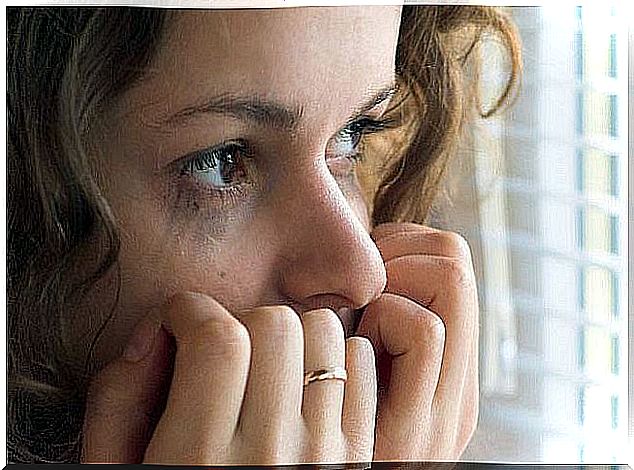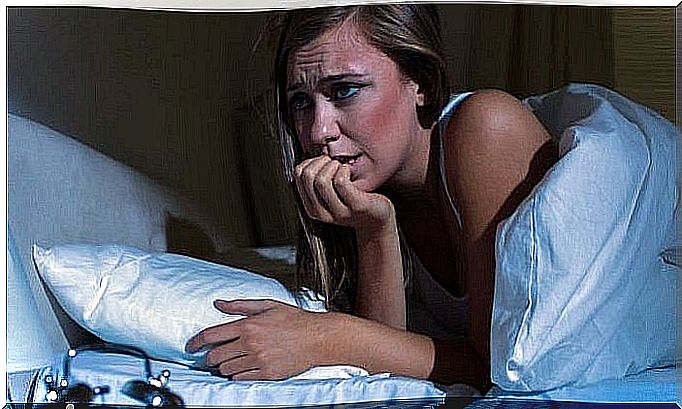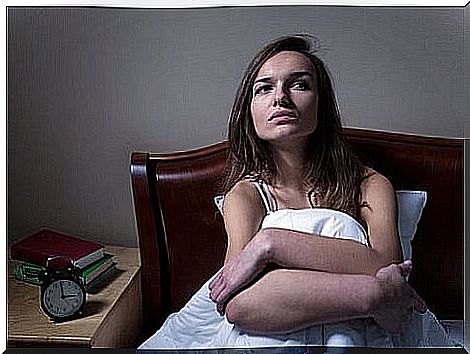Night Panic Attack: Its Causes And Treatments
A nocturnal panic attack may appear suddenly in the middle of the night with a shortness of breath, rapid heartbeat, and sweating. From a clinical point of view, it can also occur during daylight hours. However, nocturnal attacks tend to be more intense.
In the following article we will tell you in more detail what a nocturnal panic attack means as well as those people who are more likely to suffer from it and some strategies to prevent it. Keep reading!
Night Panic Attack: Who Can Get It?

When referring to panic attacks, it is common to imagine a person seized by fear, paralysis and tachycardia where, suddenly, the mind assumes that there is a danger or a source of anguish. However, these types of situations could be suffered both during the day and at night.
The Mayo Clinic journal of medicine tells us in this report which people are most susceptible to nocturnal panic attacks:
- Patients who already suffer from panic attacks at any time of the day.
- People who are immersed in situations of great psychological and emotional pressure.
- Patients with hyperthyroidism or hypothyroidism.
- People who suffer from apnea.
- People who have just experienced a traumatic event such as the loss of a loved one.
What are the symptoms of a nocturnal panic attack?

The Ayuda Association confirms that nocturnal panic attacks usually appear in the non-REM phase of sleep, that is, when we are calmer, and curiously, more relaxed.
However, the awakening is usually sudden and violent accompanied by a feeling of fear and panic. In addition to choking, tachycardia and sweating. Even though it may be perceived that this situation has lasted a long time, the reality is that this attack is very brief.
What can we do to combat nocturnal panic attacks?
As we have pointed out previously, nocturnal panic attacks are due to several causes. However, we can differentiate two large areas: medical and psychological.
Panic attacks for medical reasons

According to the psychologist Julia Pascual, factors such as problems with the thyroid, apnea or reflux can lead to these violent nocturnal awakenings. The first thing, should always be to consult a doctor and follow his instructions to the letter. Other strategies that we could apply would be:
- We will try to lead an active life since physical exercise is a good regulator of these anxiety attacks and sleep.
- After a nocturnal panic attack, it is advisable to get up and do some non-stimulating routine task : order something, brush our teeth or hair.
- It would not be advisable to do activities that keep our brain active and that require great concentration.
Panic attacks for emotional or psychological reasons
For these latter, it would be advisable to:
- Find out what is the origin of our emotional problems or the trigger for that anxiety.
- Manage that emotional world with the help of a professional or through appropriate personal coping techniques.
- Before sleeping we will practice some breathing and relaxation technique.
- The mindfulness is well suited to handle these situations. This is stated in this study carried out by the Universitat Jaume I.
- Yoga could also help us.
- Swimming, dancing, or walks in natural surroundings are relaxing and suitable activities for these types of disorders.
To conclude, let us never hesitate to inform our doctor of any type of problem related to panic or sleep disorders. Since it is important to know the reasons and how to fix it.









